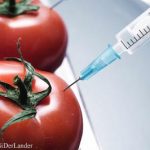The Environmental Working Group has published their Dirty Dozen Produce List and their Clean Fifteen list for 2022, with the top 12 fruits and vegetables that are most likely to be contaminated with pesticides and the top 15 that are least likely to be contaminated. The report states that more than 705 of non-organic fresh produce sold in the United States contains residues of potentially harmful pesticides. The guide analyzes the latest test data from the USDA and FDA. It also found that more than 50% of potatoes, spinach, lettuce, and eggplant had detectable levels of at least one of three bee-killing nemonic insecticides that are banned in the EU but still allowed in the U.S. The USDA washes, peels, or scrubs the fruits and vegetables before testing, so those actions will not … [Read more...]
General Mills Moves Forward With Sustainable Palm Oil Plan
General Mills is moving forward with its commitment to source 100 percent of its palm oil from responsible and sustainable producers by 2015. Because of its mild flavor, palm oil, a saturated fat, is one option food companies have chosen as a replacement for trans fats in snack food items. It's also used in beauty products and cleaning agents. To meet the growing demand for palm oil, suppliers are clearing tropical forests, sometimes by burning them destroying critical habitat and contributing to air pollution by removing existing forest often by burning it. The Union for Concerned Scientists (UCS) has a scorecard for 30 major companies that use palm oil in their products. General Mills is one of them. Although the company committed in 2010 to sourcing all of its palm oils … [Read more...]
Newly Popular Palm Oil Causing Deforestation
Palm oil, a medium-chain saturated fat, is becoming very popular in recent years. It is inexpensive, mildly flavored, and versatile. But palm oil harvest is causing massive deforestation and contributing to climate change. The Union of Concerned Scientists (UCS) is urging consumers to tell manufacturers to use deforestation-free palm oil, which is produced in an environmentally-acceptable way. The problem is that large areas of tropical forests are cleared to plant palm plantations. That destroys critical habitat for endangered species such as tigers, elephants, orangutans, and rhinos. The forests are often burned, releasing massive amounts of carbon, which contributes to global warming and climate change. UCS has developed a scorecard to show consumers how the 30 biggest companies … [Read more...]
Food & Water Watch Targets Maryland Poultry Industry Polluters
Food & Water Watch is targeting poultry industries in Maryland that contribute to nutrient pollution in the Chesapeake Bay. Legislation introduced by Senator Richard Madaleno (D-18) and Delegate Shane Robinson (D-39), called the Poultry Fair Share Act, would hold Maryland's big poultry companies partially accountable for cleanup. Water quality in the Chesapeake Bay watershed has declined in recent years. Factory poultry farms on Maryland's Eastern Shore make a billion and a half pounds of waste every year. Contract growers are forced to dump excess chicken manure on saturated farm fields because these companies will not handle the waste themselves. Runoff ends up in the Bay and its tributaries. Food Poisoning Bulletin told you about this problem last month. Phosphorous pollution … [Read more...]
USDA Prepares for Environmental Impact Statements on New GMO Crops
Last week the USDA's Animal and Plant Health Inspection Service (APHIS) announced they are going to prepare two separate environmental impact statements (EIS) to "better inform decision-making regarding the regulatory status of crops genetically engineered to be resistant to the herbicides known as 2,4 dichlorophenoxyacetic acid (2,4-D) and Dicamba. In other words, instead of simply approving these new crops, as expected, the government is going to investigate these new seeds further. This comes as a shock to Dow, who expected the USDA to approved the crops last December. In January, the company said that "approvals will be in place for sale in late 2013". This delay means the GE crops will not be available for planting in 2014 either. Under the National Environmental Policy Act … [Read more...]







